Scientist Spotlight: Rosemary Willatt
1 October 2021
Hello, I’m Rosemary Willatt. I’m a Research Fellow at the Centre of Polar Observation Modelling.
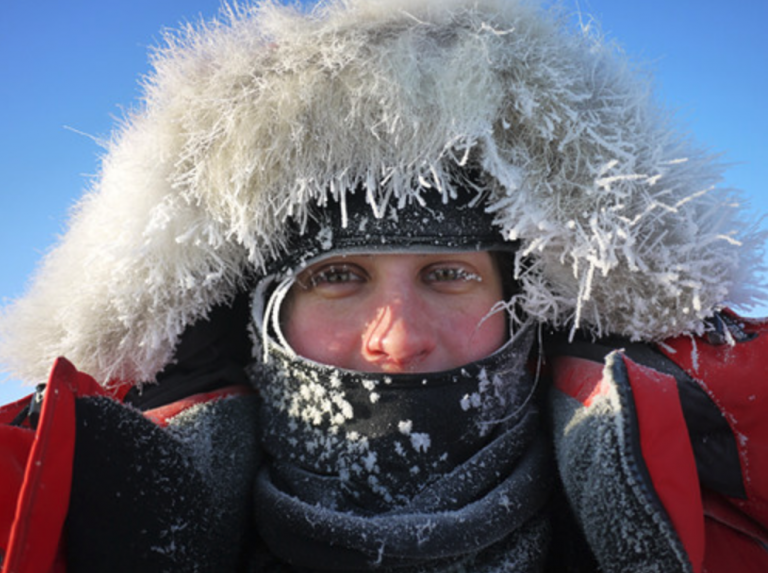
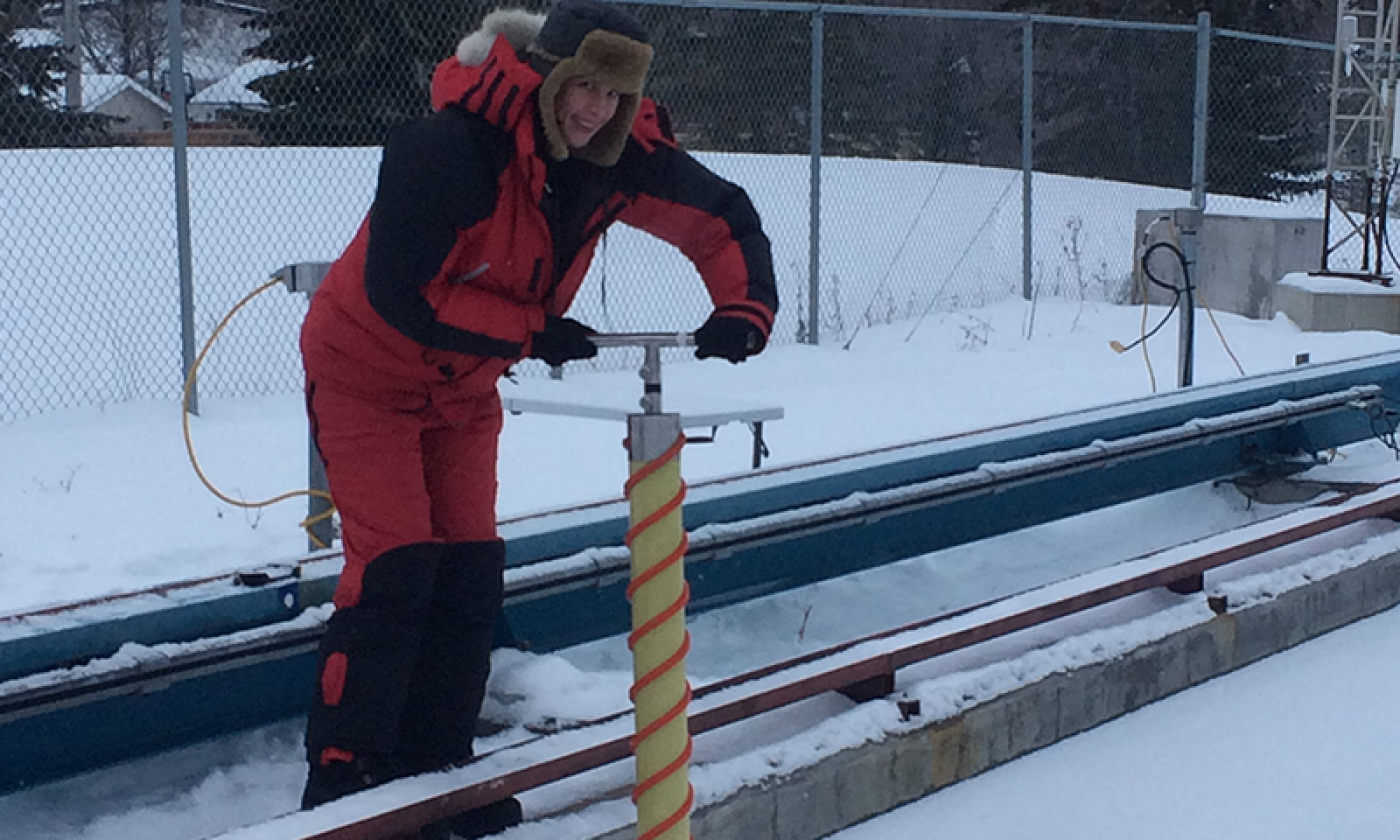
Rosie drilling an ice core at the Sea Ice Environment Research Facility (SERF), University of Manitoba, Canada. Credit: Robbie Mallett (UCL)
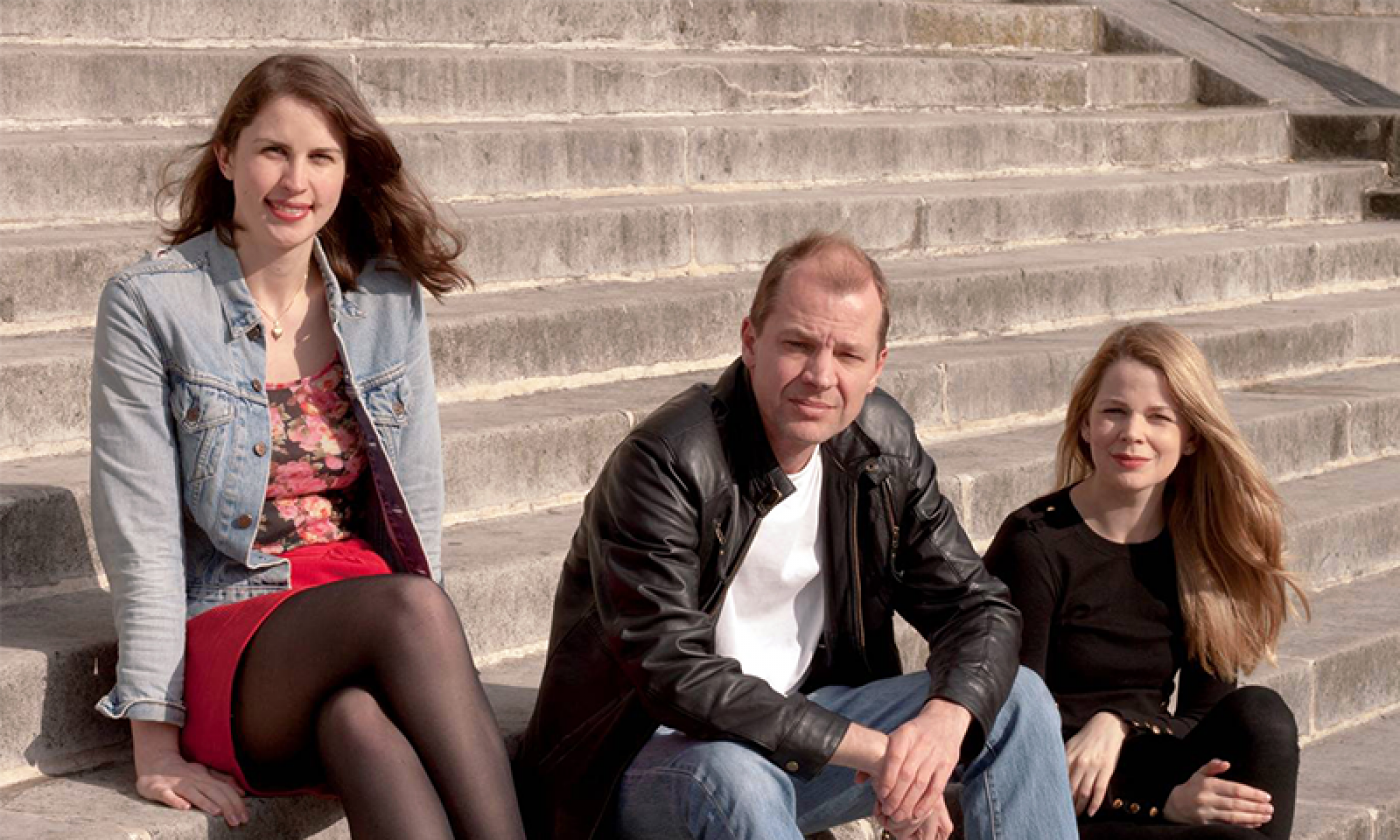
Rosie with Prof. Seymour Laxon and Dr. Katharine Giles, the scientists who pioneered the field of satellite radar altimetry for sea ice thickness determination, and who inspired and guided her throughout her PhD. Both are sadly no longer with us. Photo credit: Harry Heorton (UCL).
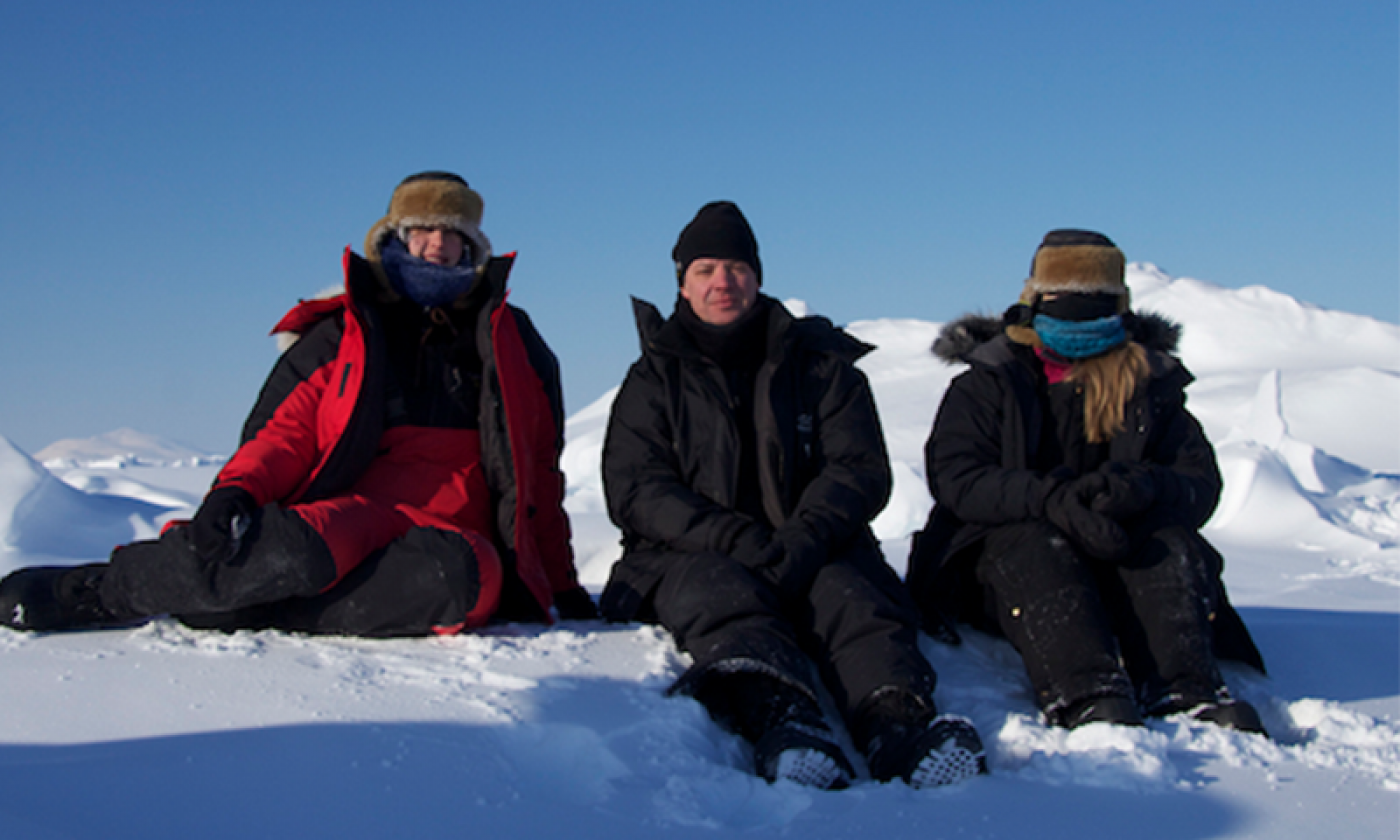
... and here the scientists taking a short break during their Arctic fieldwork. Credit: Stefan Hendricks (AWI)
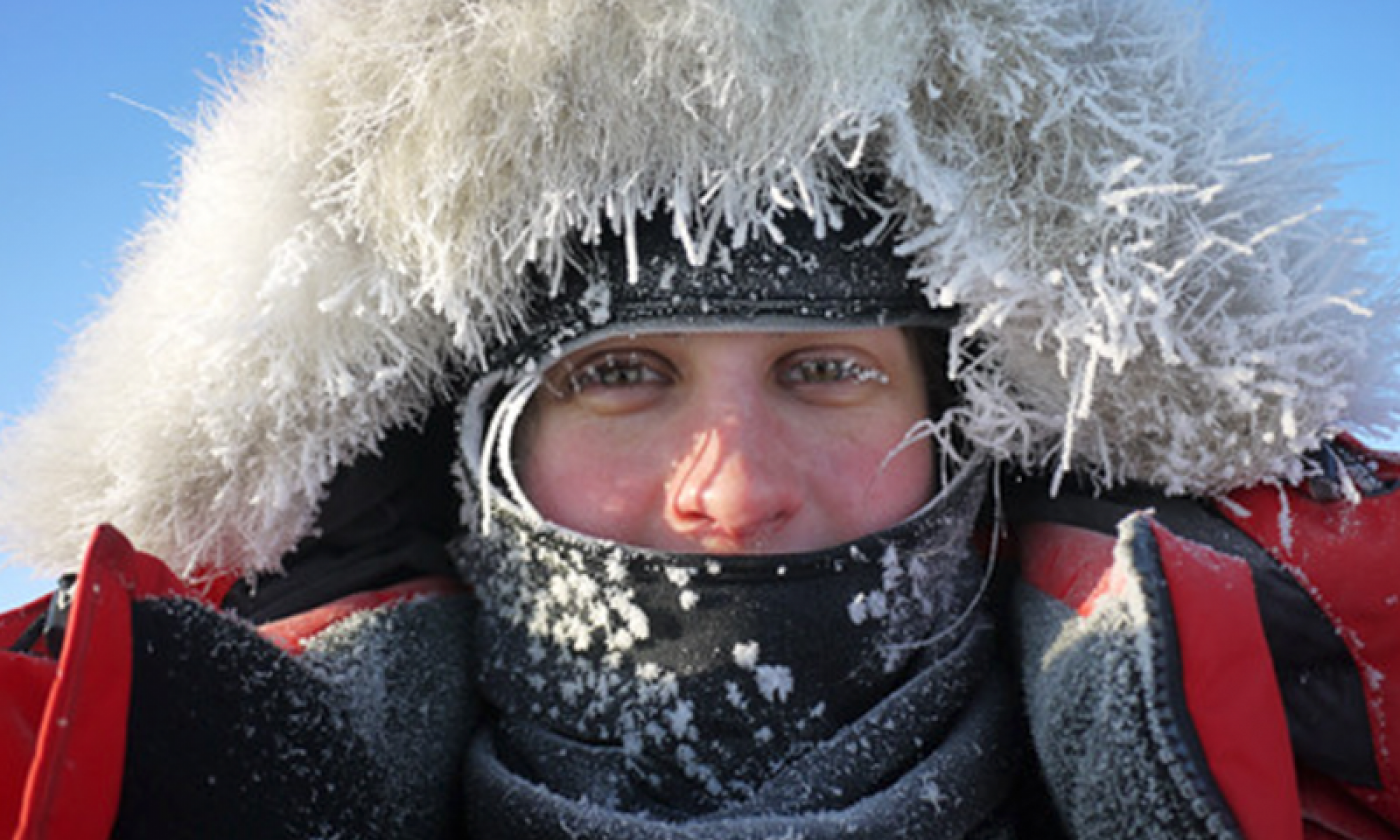
Dr Rosemary Willatt, Photo Credit: Dr Katharine Giles
Ever since I was young I have been fascinated by Earth's environment, particularly the sky and the ways that waves of light, or electromagnetic radiation, interact with everything else in our universe - so I studied MSci Astronomy. I loved my degree, which also included some environmental physics, and was awarded the Astronomy prize for best performance every year and made the Dean's list. I then had a great opportunity to work for the European Space Agency in Spain as a Young Graduate Trainee, working on astronomical data from the XMM Newton X-ray space telescope. I realised that I wanted to continue to work with satellite data, using electromagnetic radiation, but for Earth Observation. I did a PhD in UCL Department of Earth Sciences in the Centre for Polar Observation and Modelling, looking at how radiation interacts with snow-covered sea ice. I then had a career break from science research (working in the private and education sectors on environmental sustainability), and a family, and returned to science in late 2019. I am passionate about diversity in science and an active member of the department's groups WiES and Network for Ethnic Diversity. I have written an article for Women in Science day about my own experiences as a mum and scientist.
 Close
Close

